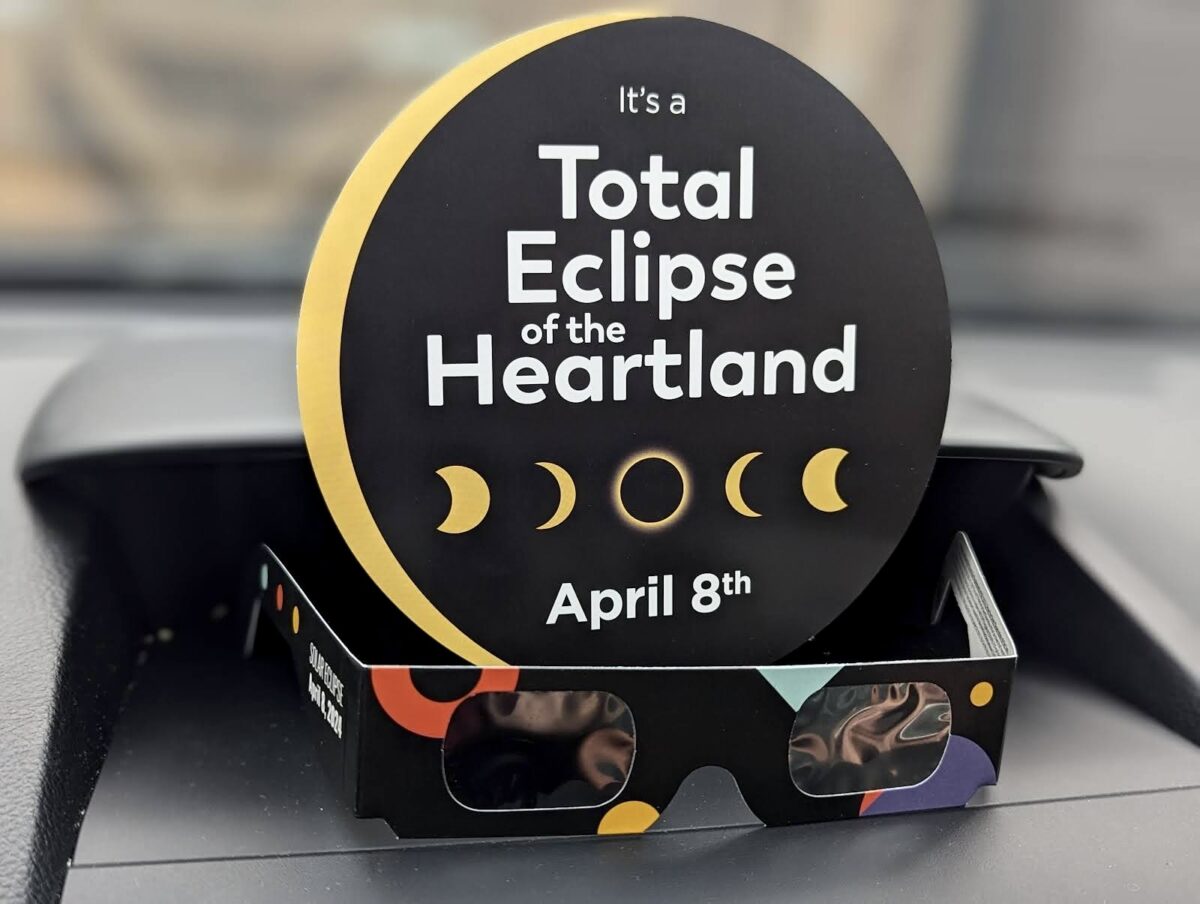Around 3:00 pm EDT on April 8, the Denison campus will become strangely dim.
Unless, of course, there’s a thunderstorm overhead.
Actually, when a solar eclipse passes, and is as close to totality as we will see in Licking County, you would notice the intensification of darkness even on a cloudy day. Eclipses are powerful astronomical phenomena, and a total solar eclipse is like nothing else you might experience out in nature.
The path of 100% totality is just to our west, nicking the upper left, or northwest corner of the county, and anyone who has experienced “totality” will tell you the difference between 95% and 100% is quite dramatic. So on campus, and in most of Licking County, we won’t get the full effect.
Local civil defense and emergency management agencies are preparing for major disruptions due to traffic tie-ups and cell phone failures. Neither are because of the eclipse itself, but in the minutes immediately after totality, too many people are likely to try to send photos to their friends and family outside of Ohio and then head home on unusually busy roads.
Recent solar eclipses passing across Kentucky and Tennessee have taught police and fire officials a lesson, since you can easily add thousands to an area over a few days, with no problem: It’s all of them wanting to go home or find a bathroom in the same fifteen minutes after an eclipse ends that creates the immediate havoc.
We won’t see a total eclipse in Granville on April 8, but we will see traffic jams heading through here at about 4 p.m., about an hour after the total eclipse ends.
Natural phenomena do leave a mark on the collective memory of a community, state and region. Granville’s history includes two strange events of the early 1800s with a lasting legacy in the public recollection.
Rev. Henry Bushnell’s “History of Granville,” written in 1880, recalls the “Earthquake of 1811” caused by the New Madrid Fault that still threatens the Midwest today. In 1811, the initial jolt on Dec. 16 was felt all across the Great Lakes region, and the impacts of that day and the ongoing aftershocks into 1812 were used by the Shawnee leader Tecumseh as a signal and talking point for his regional efforts to gather Native American resistance to the growing American presence in the region.
Early on Dec. 16, 1811, the new doctor for the village, Dr. William Richards, was “sleeping one night in the same room with David Messenger, Jr., when the house was shaken by one of the great earthquake waves that changed the channel of the Mississippi. Messenger was frightened by the rolling of the house, and waking the Doctor, asked what he thought was the cause of the house shaking so. The Doctor roused up enough to mutter that it must be a hog rubbing against the house, and went to sleep again.”
In 1880, Bushnell interviewed an elderly man who recalled childhood memories of 1811.
“The day before this occurrence Daniel Baker had been with his family to Newark to make some purchases, among other things some blue-edged dishes. That night the family slept in pioneer style in their new cabin. The dishes stood on the table and the bed of Daniel, Jr., then a small boy, was on the floor and near the table. He was awakened in the night by the rattling of the dishes over his head, but was too young to be alarmed.”
Bushnell also recounts the great “Meteor Shower” of 1833, a major occurrence of the annual Leonid meteor shower that was visible all across the early United States, with variable impacts depending on the local weather. Alabama had clear skies, and “Stars Fell on Alabama” became a popular book and orchestral jazz standard out of those vivid memories.Early in the morning of Nov. 13 in Granville, Ohio: “It was but the quiet, gentle, beautiful, prolonged rain of glowing sparks that died as they neared or touched the ground. Here, there, everywhere, they fell like lighted snow-flakes at the gentle beginning of a snow storm, each leaving a fine luminous track behind it. The morning bell was rung rather boisterously in the hope of waking people up to see the sublime spectacle. Some were panic stricken and expected the end of the world. One old lady rose, went into the street and shouted in terror. But most of the people appreciated it at once as an unusual natural phenomenon. It was a season of rapt enjoyment until the display was lost in the rising day.”
Our eclipse in April will likely be a similar sort of experience.
Jeff Gill is a pastor, a mediator and a freelance writer in Granville, Ohio.

